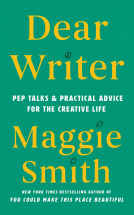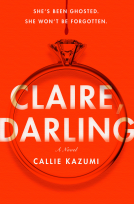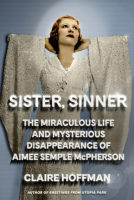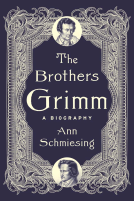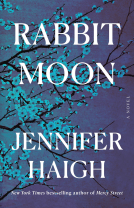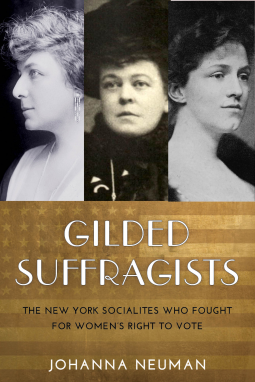
Gilded Suffragists
The New York Socialites who Fought for Women's Right to Vote
by Johanna Neuman
This title was previously available on NetGalley and is now archived.
Send NetGalley books directly to your Kindle or Kindle app
1
To read on a Kindle or Kindle app, please add kindle@netgalley.com as an approved email address to receive files in your Amazon account. Click here for step-by-step instructions.
2
Also find your Kindle email address within your Amazon account, and enter it here.
Pub Date Sep 05 2017 | Archive Date Jan 08 2018
NYU Press | Washington Mews Books/NYU Press
Description
New York City’s elite women who turned a feminist cause into a fashionable revolution
In the early twentieth century over two hundred of New York's most glamorous socialites joined the suffrage movement. Their names—Astor, Belmont, Rockefeller, Tiffany, Vanderbilt, Whitney and the like—carried enormous public value. These women were the media darlings of their day because of the extravagance of their costume balls and the opulence of the French couture clothes, and they leveraged their social celebrity for political power, turning women's right to vote into a fashionable cause.
Although they were dismissed by critics as bored socialites “trying on suffrage as they might the latest couture designs from Paris,” these gilded suffragists were at the epicenter of the great reforms known collectively as the Progressive Era. From championing education for women, to pursuing careers, and advocating for the end of marriage, these women were engaged with the swirl of change that swept through the streets of New York City.
Johanna Neuman restores these women to their rightful place in the story of women’s suffrage. Understanding the need for popular approval for any social change, these socialites used their wealth, power, social connections and style to excite mainstream interest and to diffuse resistance to the cause. In the end, as Neuman says, when change was in the air, these women helped push women’s suffrage over the finish line.
Available Editions
| EDITION | Other Format |
| ISBN | 9781479837069 |
| PRICE | $89.00 (USD) |
| PAGES | 240 |
Links
Featured Reviews
 Sharon B, Reviewer
Sharon B, Reviewer
This book was such a learning experience for me. I was not aware of these brave women who used their place in society to fight for women's rights and improve the world. I also liked reading about the men that supported these women. Some of them even joined in the fight with these courageous women. This is one of my favorite topics to read about, and the author did not disappoint. I could tell it was well researched and it was also very readable. I loved it! Highly recommend!
 Brenda M, Reviewer
Brenda M, Reviewer
A big thank you to Johanna Neuman, Washington Mews Press, and Netgalley for the copy of this book in exchange for an unbiased review.
In the days when New York circulated over 20 daily newspapers and birth control was an arrestable offense, women named Astor, Rockefeller, and Vanderbilt along with the likes of Katherine Hepburn's mother bonded in the fight to win the women's vote.
In the shadow of the days of the fin de siecle women were viewed as emotional, weak vessels with the home as their domain. But as a certain class made the climb to celebrity inspiration drew the together to create The Colony Club on Madison Avenue, a social society with its own building housing a running track, a restaurant, bedrooms, and holding enrichment programs for its members, which was capped at 700. As these ladies became more civically-minded their talks leaned toward the suffrage movement.
These women reminded me of the mother in Mary Poppins. A lovely, engaging personality who couldn't do more for society could not be found than one of these ladies. So respected were they that they won the respect of thousands of men who also fought for the cause.
Neumann explores history with an unclouded eye in this book. These women were not perfect and often made headlines, but they certainly weren't the violent types of Great Britain. The rights of all females were based upon the movement of yesteryear. Neuman does an excellent job informing the reader how indebted we are to these brave souls.
 Kelly A, Reviewer
Kelly A, Reviewer
I felt that this book was very well written and worth my time in reading. I have always had an interest in the suffragist movement and this helped remind me why.
Subtitled, The New York Socialites Who Fought for Women's Right to Vote, Johanna Neuman's book credits the forgotten women of the upper class who joined the movement for suffrage.
Just as today the media loves wealth and beauty, a hundred years ago the media loved the elite denizens of New York, helping to establish the power of the 'celebrity endorsement.'
When socialites decided to form their own club, become involved with the betterment of the immigrant and the poor, and support women's right to self-government, they provided much-needed funding and a public voice from within the establishment.
They thought it important to be well dressed and feminine to counter the stereotype of suffragettes as masculine or hysterical. Some took to soap boxes while others held elegant soirees. The women publicly paraded in white with banners, an act of nonconformity that brought ridicule and angry threats. Eventually, enlightened men supported their wives, marching with them, while others' disapproving husbands sat grimly on the sidelines.
WWI had a huge impact on the movement. The Suffragists were criticized for drawing the president's attention away from the war, and it was then that they became targets of police brutality and inhumane treatment in prison.
I was moved by the story of Jeanette Rankin, a pacifist Montana Republican and the first women elected to the U.S. Congress. When President Wilson asked Congress to approve entering WWI, Rankin was under huge pressure. Should she stand by her pacifist beliefs? Or, representing all women and their political future, must she prove that women could rise to the occasion and support war when circumstances required it?
When Elizabeth Cady Stanton and Susan B. Anthony published their History of Woman Suffrage they omitted or distorted the history of the movement, emphasizing their own roles as founders. Over the years, the Gilded Suffragettes were relegated to the sidelines of history and then were forgotten.
Neuman locates the movement in the history of the early 20th c., a time of great social change, including the establishment of the federal income tax, laws overseeing business, and population shifts from rural to urban areas.
I finished this book August 18; it was on August 18, 1920, that the 19th Amendment was passed. In some ways, women have come a long way, and yet our rights for self-determination and political and equality are under threat. A hundred years ago society's darlings, dressed in couture fashions and big hats, stood up for social equality. I would like to know, are today's women of the 1% as willing or interested in standing up for political equality? Or is it only the new class of elites from the entertainment business that have the courage?
I received a free ebook from the publisher through NetGalley in exchange for a fair and unbiased review.
Readers who liked this book also liked:
Patti Callahan Henry
General Fiction (Adult), Historical Fiction, Women's Fiction
